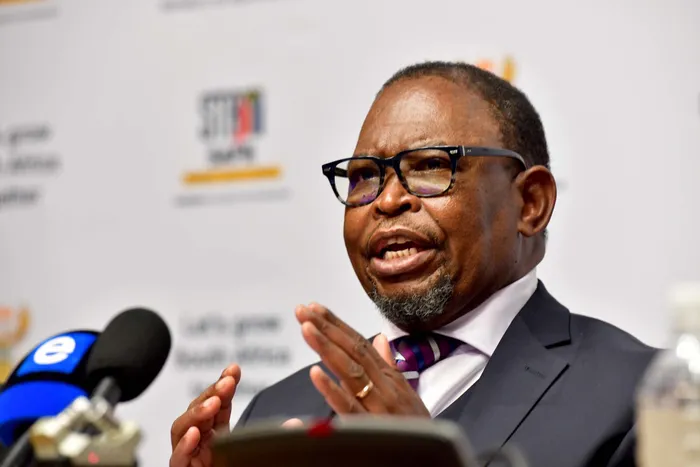G20 Finance Ministers commit to policy cooperation for global prosperity
G20

Third Meeting of the G20 Finance Ministers and Central Bank Governors (FMCBG) under the G20 Finance Track meetings which took place in Zimbali North of Durban concluded with a Finance Track Communique being issued on Friday
Image: Elmond Jiyane / GCIS
The Third Meeting of the G20 Finance Ministers and Central Bank Governors (FMCBG) has committed to international policy cooperation, aimed at further promoting global prosperity.
The gathering, which brought together finance leaders from the world's 20 largest economies, tackled critical shared challenges that have persisted in the wake of economic disruptions exacerbated by the COVID-19 pandemic, rising geopolitical tensions, and sustainability concerns.
During the discussions, which spanned two days, participants acknowledged the need for collaborative solutions that not only address immediate economic challenges but also lay the groundwork for long-term resilience and growth.
The finance ministers and central bank governors recognised that only through coordinated efforts can nations effectively manage global economic uncertainties and ensure inclusive development.
“FMCBG recognised the challenges posed by conflicts, geopolitical and trade tensions, disruptions to global supply chains, high debt levels, and frequent extreme weather events and natural disasters, which impact economic growth, price and financial stability,” read the Finance Track communiqué issued at the end of the meeting.
“They agreed to bolster long-term growth potential by pursuing growth-oriented macroeconomic policies, while building fiscal buffers, ensuring fiscal sustainability, encouraging public and private investments, undertaking productivity-enhancing reforms and safeguarding central bank independence to maintain price stability.”
One of the central themes of the meeting was how to enhance financial stability while bolstering efforts towards sustainable development. As the world faces increasing threats posed by climate change, the need for integrating sustainability into fiscal and monetary policies was underscored.
The participants reiterated their commitment to the goals established in previous meetings, including those related to climate finance and the global transition towards greener economies.
“The G20 serves as an essential platform for fostering dialogue and cooperation among major economies, and this meeting has reinforced our shared resolve to work collectively towards addressing pressing global issues,” stated the chair of the meeting. This sentiment was echoed by various representatives who emphasised the importance of shared responsibility and collaborative action in navigating an increasingly interconnected world.
Moreover, the FMCBG discussed strategies to bolster economic recovery in developing nations, calling for increased support and investment. There was a consensus that as richer nations recover, it is crucial to bring along those less fortunate, as global prosperity cannot be achieved in isolation.
The outcomes of this meeting are expected to influence the agenda as finance leaders prepare for the imminent G20 summit, where discussions will broaden to include heads of state and other influential stakeholders. The interconnected nature of today’s economy necessitates that leaders remain vigilant and proactive in their engagements.
The G20 framework continues to be a vital instrument in the prolonged pursuit of stability, sustainability, and inclusivity on a global scale, as demonstrated during this latest convening of financial powerhouses.
Professor Waldo Krugell, an economist at North West University, said that the G20 Finance track was focusing on really sensible policies in financial innovation for domestic and cross-border payment.
“Reducing costs and improving speed, and access will help to fuel economic activity. Doing it in a transparent way will also help to get us off the FATF grey list,” he said.
“I like some of the ideas that have been put forward for infrastructure finance. Turning infrastructure into an investment opportunity usually involves solutions from financial engineering, credit guarantee schemes that help to manage risk.”
BUSINESS REPORT
Related Topics: